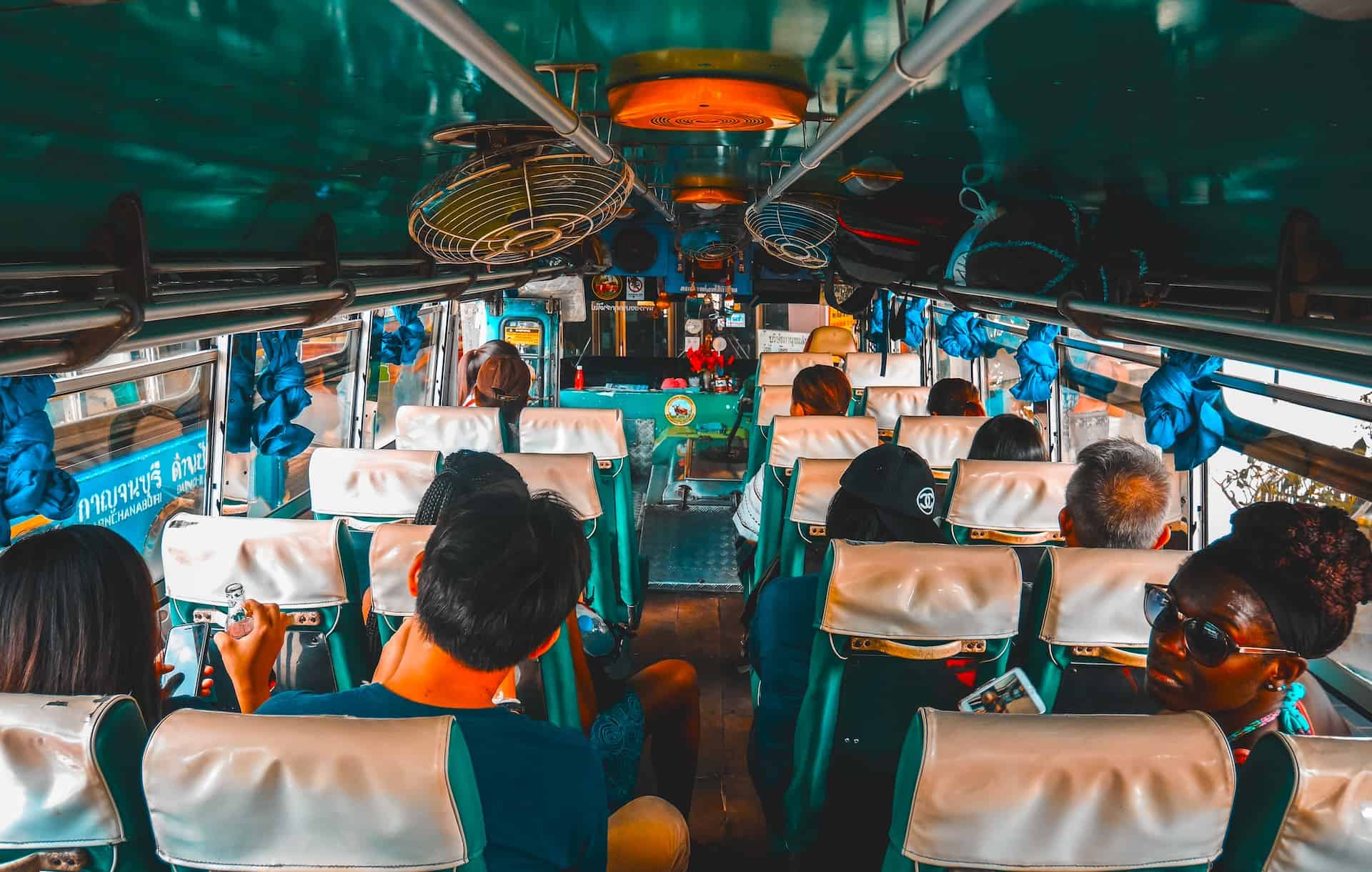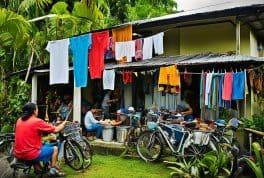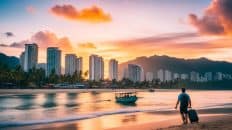Ultimate Philippines Expats Guide
Life as an expat in the Philippines offers a blend of tropical beauty, affordable living, and warm hospitality. With English widely spoken, expats enjoy easy integration into the vibrant culture and community, experiencing a unique mix of relaxation, adventure, and rich local traditions in this Southeast Asian paradise.
Articles
Table of Contents
Top 10 Questions and Answers about Being a Philippines Expat
1. What is the cost of living like in the Philippines for an expat?
- The cost of living in the Philippines is generally lower compared to many Western countries. Expenses like housing, food, and transportation are quite affordable. However, it can vary depending on your lifestyle and the city you choose to live in. Places like Manila and Cebu might be more expensive than provincial areas.
2. How is the healthcare system in the Philippines for expats?
- The healthcare system in the Philippines offers a mix of public and private healthcare facilities. Major cities have hospitals with modern facilities and English-speaking staff. Healthcare costs are relatively lower, but it's advisable for expats to have health insurance.
3. Is it easy to get a visa to live in the Philippines?
- The Philippines offers various types of visas for expats, including retirement visas which are quite popular. The process can be straightforward, especially with the Special Resident Retiree's Visa (SRRV), which provides multiple benefits. However, it’s important to comply with all legal requirements and possibly consult with a legal expert.
4. Can expats find work easily in the Philippines?
- Finding work can be challenging depending on your skill set and the industry. English teaching and the BPO (Business Process Outsourcing) sector are common areas where expats find work. It's also a growing hub for digital nomads and entrepreneurs.
5. How is the expat community in the Philippines?
- The expat community in the Philippines is diverse and welcoming. Major cities have active expat groups and clubs where you can meet people from all over the world. This community is supportive, especially for newcomers adjusting to life in the Philippines.
6. What is the quality of education for expat children?
- There are several international schools in the Philippines offering quality education, often following American, British, or International Baccalaureate curricula. These schools are mostly located in major cities and cater to the needs of expat children.
7. How safe is the Philippines for expats?
- Like any country, safety varies by region. Urban areas are generally safe, but it’s advisable to take standard safety precautions. It's important to stay informed about local news and avoid areas with travel advisories.
8. Is the language barrier a big issue in the Philippines?
- English is one of the official languages of the Philippines and is widely spoken, especially in urban areas and tourist destinations. This reduces the language barrier significantly for English-speaking expats.
9. Can expats own property in the Philippines?
- Foreigners cannot own land in the Philippines, but they can legally own condominium units or apartments in high-rise buildings as long as the foreign proportion does not exceed 40% of the total unit.
10. What about the culture and lifestyle?
- The Philippines has a rich cultural heritage influenced by its history. Expats often enjoy the local festivals, diverse cuisine, and the general warmth of the Filipino people. The lifestyle can be laid back or vibrant, depending on where you choose to live.
Living as an expat in the Philippines offers a unique and enriching experience, blending the comfort of modern amenities with the charm of Southeast Asian culture and hospitality.
Guides and Tours:

Why you should be an Expat living in the Philippines
Embracing Life as a Philippines Expat: A Journey to Paradise
There's a certain magic in the air when you first set foot in the Philippines. The warm breeze, the inviting smiles of the locals, and the breathtaking scenery all converge to create a sense of wonder and excitement. For those seeking a new chapter in life, becoming a Philippines Expat offers an experience that is both enriching and life-changing.
Why Choose the Philippines?
The Philippines, an archipelago of over 7,000 islands, is a land of diverse beauty and cultural richness. Its tropical climate, affordable cost of living, and the warmth of its people make it an ideal destination for expats from all over the world. The nation's unique blend of natural wonders, from pristine beaches to lush mountains, provides a backdrop for an adventurous and relaxing lifestyle.
The Allure of Island Living
Life in the Philippines is synonymous with island living. Whether you choose to settle in the hustle and bustle of cities like Manila and Cebu or the tranquil shores of Palawan and Boracay, you'll find a lifestyle that suits your preferences. As a Philippines Expat, the opportunity to explore hidden coves, dive into the rich marine life, and bask under the sun on powdery white beaches becomes a part of your everyday life.
A Community That Welcomes You
One of the most endearing aspects of becoming a Philippines Expat is the Filipino community's renowned hospitality. Filipinos are known for their friendliness and warmth, making it easy for expats to integrate and form meaningful connections. The sense of community is strong, and expats often find themselves welcomed into local gatherings, festivals, and events, creating a sense of belonging that is hard to find elsewhere.
Cost of Living: A Dream Come True
The Philippines is also attractive for its affordability. The cost of living is significantly lower than in many Western countries, allowing expats to enjoy a comfortable lifestyle without breaking the bank. From housing to healthcare, the Philippines offers quality services at a fraction of the cost. This affordability extends to leisure activities, dining, and travel within the country, making the Philippines a paradise for those who want to enjoy life to the fullest without financial strain.
Cultural Richness and Diversity
The cultural tapestry of the Philippines is rich and diverse, influenced by its history of Spanish, American, and Asian interactions. This cultural melange is evident in its cuisine, festivals, and traditions. As a Philippines Expat, you'll have the opportunity to immerse yourself in this cultural richness, learning about the nation's history, enjoying its diverse culinary offerings, and participating in vibrant festivals like Sinulog and Ati-Atihan.
English: A Language Advantage
Another significant advantage of living in the Philippines is the widespread use of English. As one of the official languages, English is spoken and understood by a majority of Filipinos, making communication for expats a breeze. This ease of communication not only facilitates everyday interactions but also helps in navigating legal and administrative processes.
A Hub for Digital Nomads and Entrepreneurs
For digital nomads and entrepreneurs, the Philippines has emerged as a hub of opportunity. With its growing economy, strategic location in Southeast Asia, and increasing investment in internet infrastructure, the country offers a conducive environment for business and remote work. Co-working spaces, networking events, and a supportive expat community provide the perfect setting for those looking to expand their professional horizons.
Healthcare and Safety
The Philippines has a growing healthcare system that offers quality medical care at affordable prices. Hospitals in major cities are equipped with modern facilities and staffed by English-speaking medical professionals. In terms of safety, while it's important to be aware of your surroundings and take standard precautions as you would anywhere in the world, the Philippines is generally a safe place for expats.
Final Thoughts: A Life-Changing Experience
Becoming a Philippines Expat is not just about moving to a new country; it's about embracing a new way of life. It's about discovering the beauty of simplicity, the joy of community, and the excitement of exploring a land so rich in natural beauty and culture. Whether you're seeking adventure, tranquility, or a fresh start, the Philippines offers a unique and fulfilling experience that will leave a lasting imprint on your heart.
In conclusion, life as a Philippines Expat offers a blend of adventure, tranquility, and cultural richness that is hard to match. It's a journey that promises new experiences, friendships, and a deeper understanding of what it means to be part of a global community. The Philippines is not just a destination; it's a home waiting to welcome you with open arms.
1. Introduction to the Philippines: A Haven for Expats
The allure of the Philippines as a destination for expatriates is a story woven from the threads of its stunning landscapes, rich cultural tapestry, and the warmth of its people. This Southeast Asian archipelago, with its more than 7,000 islands, offers a kaleidoscope of experiences for the intrepid “Philippines Expats”. From the bustling streets of Manila to the serene beaches of Palawan, the Philippines presents a unique blend of natural beauty, historical richness, and modern vibrancy.
1.1. The Philippines: A Brief Overview
The Philippines, a country known for its hospitable and English-speaking populace, has become an increasingly popular choice for expatriates. Its history, marked by Spanish and American influences, has shaped a nation that is both familiar and exotic to Westerners. The Filipino culture, steeped in a history of resilience and adaptability, offers a welcoming environment for those looking to call this nation their new home.
In recent years, the Philippines has seen a steady influx of expatriates, drawn by the promise of a lower cost of living, stunning natural scenery, and the opportunity to experience a lifestyle that blends the best of eastern and western sensibilities. As a result, the term "Philippines Expats" has become synonymous with adventurous individuals seeking a life less ordinary.
1.2. The Cultural and Historical Context
To understand the appeal of the Philippines to expatriates, one must delve into its rich cultural and historical context. The country's history is a compelling tale of colonization, revolution, and the enduring spirit of its people. The Spanish colonization, which lasted for over three centuries, has left an indelible mark on Filipino culture, evident in the country's predominant Catholic faith, cuisine, and festivities. The American occupation, though shorter, significantly influenced the educational system, government, and popular culture.
This blend of influences has created a Filipino culture that is unique and diverse. The country's festivities, such as the vibrant Sinulog and Ati-Atihan festivals, are a testament to the Filipino spirit of celebration and resilience. The Philippines Expat is often mesmerized by these cultural displays, finding in them a deep sense of community and joy.
1.3. The Scope of this Article about Philippines Expats
This article aims to provide a comprehensive guide for those considering a move to the Philippines. It will cover various aspects crucial to the expatriate experience, from the practicalities of visa applications and property acquisition to the subtleties of cultural integration and social networking. Whether you are a retiree seeking a tranquil haven, a professional exploring new career avenues, or a digital nomad in search of inspiration, this guide will serve as a valuable resource in your journey as a Philippines Expat.
In the following sections, we will explore the reasons that make the Philippines an attractive destination for expatriates, delve into the essentials of preparing for the move, and offer insights into navigating the intricacies of daily life in this vibrant country. Our journey will also include personal stories and experiences from expatriates who have made the Philippines their home, offering a first-hand perspective on the joys and challenges of expat life in this unique archipelago.
2. Why the Philippines? Attracting Expatriates from Across the Globe
The Philippines, a gem in the heart of Southeast Asia, has emerged as a top destination for expatriates from around the world. The allure of living in this tropical paradise is manifold, ranging from its natural beauty to its economic opportunities. In this section, we delve into the factors that make the Philippines a sought-after destination for the growing community of "Philippines Expats".
2.1. The Enchanting Natural Beauty and Climate
The Philippines is renowned for its breathtaking natural beauty, characterized by pristine beaches, lush green landscapes, and a climate that is generally tropical and inviting. Places like Boracay, Palawan, and Siargao have captivated the hearts of many Philippines Expats with their turquoise waters and white sandy beaches. The archipelago's diverse geography also includes majestic mountains, such as the famous Chocolate Hills in Bohol and the picturesque rice terraces of Banaue.
The tropical climate of the Philippines is another aspect that attracts expatriates. With its warm weather year-round, Philippines Expats from colder climates find a welcoming escape from harsh winters. The country does experience a rainy season, but even this brings its own beauty, turning the landscapes a vibrant green and providing a respite from the heat.
2.2. The Cost of Living Considerations for Philippines Expats
One of the most compelling reasons expatriates choose the Philippines is the cost of living, which is significantly lower than in many Western countries. Housing, food, transportation, and healthcare are all more affordable, allowing Philippines Expats to enjoy a comfortable lifestyle without the financial strain they might experience in their home countries. This affordability does not come at the cost of quality. Housing options range from luxurious villas to modest yet comfortable apartments, catering to diverse budgets and preferences.
The lower cost of living also extends to leisure activities. Dining out, entertainment, and travel within the country are reasonably priced, enabling Philippines expats to explore and enjoy the rich experiences the Philippines has to offer without breaking the bank.
2.3. The Friendly and Welcoming Local Population
Filipinos are renowned for their hospitality and friendliness, traits that greatly enhance the experience of living in the Philippines. The warmth and openness of the local population make it easier for expatriates to settle in and feel at home. Many Philippines Expats speak of the genuine relationships they have formed with Filipinos, marked by a sense of community and belonging.
The widespread use of English in the Philippines further eases the transition for many expatriates. English is one of the official languages of the country and is widely spoken and understood. This linguistic accessibility is a significant advantage for expatriates, especially in the early stages of their move, as it helps them navigate daily life, from shopping and transportation to social interactions and business dealings.
3. Preparing for the Move: A Guide for Future Philippines Expats
Moving to a new country is a significant life decision, filled with excitement, anticipation, and a fair share of challenges. For those aspiring to become Philippines Expats, the preparation phase is crucial. This section provides a detailed guide on the essential steps and considerations for preparing to move to the Philippines.
3.1. Understanding Visa Requirements and Options
Navigating the visa process is one of the first steps for any potential Philippines Expat. The Philippines offers various visa options, each catering to different needs and circumstances. The most common types include tourist visas, retirement visas, and special visas for employment or business.
- Tourist Visa: This is often the first step for many Philippines expats, allowing them to explore the country before making a long-term commitment. Tourist visas are typically valid for 30 days and can be extended for up to three years under certain conditions.
- Retirement Visa: The Special Resident Retiree's Visa (SRRV) is popular among retirees. It requires a deposit in a Philippine bank or an investment in real estate, and it offers benefits like multiple-entry privileges and exemptions from certain taxes.
- Work and Business Visas: For those seeking employment or looking to start a business, there are specific visas like the 9G (Pre-arranged Employment Visa) and the 9D (Treaty Trader's Visa). These require sponsorship from a Philippine company or proof of investment.
It is essential for anyone planning to become a Philippines Expat to consult with the Philippine Embassy or a legal expert to understand the most suitable visa option and the requirements involved.
3.2. Financial Planning and Budgeting for Philippines Expats
Financial preparation is key to a smooth transition. Prospective Philippines Expats should conduct thorough research on the cost of living in different parts of the Philippines, as expenses can vary significantly between urban and rural areas. Budgeting should account for housing, utilities, food, transportation, healthcare, and leisure activities.
It's also important to consider the logistics of financial management while abroad. This includes setting up a local bank account, understanding currency exchange rates, and arranging for regular expenses like rent and utilities. Additionally, expatriates should be aware of their tax obligations both in the Philippines and in their home country.
3.3. Health Insurance and Healthcare Services for Philippines Expats
Healthcare is a critical consideration for anyone moving to a new country. The Philippines has a mix of public and private healthcare facilities. While the quality of healthcare in major cities is generally good, it can vary in more remote areas.
Expatriates are advised to obtain comprehensive health insurance that covers medical treatment in the Philippines and, if possible, emergency evacuation. It's also wise to research hospitals and clinics in the area where you plan to live and understand the process of accessing healthcare services as a foreign resident.
4. Finding a Place to Live: A Comprehensive Guide for Philippines Expats
Choosing where to live is a pivotal decision for any Philippines Expat. The Philippines offers a variety of living options, from bustling metropolitan areas to tranquil coastal towns. This section will guide you through the process of finding your ideal home in the Philippines, considering factors like location, type of housing, and legalities.
4.1. Popular Expat Cities and Regions for Philippines Expats
The Philippines is diverse in its living options, each area offering a unique lifestyle and set of advantages.
- Metro Manila: The capital region is the country's economic and cultural hub, appealing to those who prefer urban living. It offers modern amenities, a vibrant nightlife, and a plethora of dining and shopping options. Key areas include Makati, Bonifacio Global City, and Quezon City.
- Cebu and Davao: These cities are popular among Philippines expats who want a mix of urban and natural attractions. Both cities provide modern conveniences and are gateways to beautiful beaches and other natural attractions.
- Palawan and Boracay: For those seeking a more laid-back, island lifestyle, these destinations are ideal. Known for their stunning beaches and relaxed pace of life, they are perfect for retirees or remote workers.
4.2. Housing Options: Renting vs. Buying
Philippines Expats have the option to either rent or buy property. Renting is often the preferred choice for those new to the country, as it provides flexibility and the opportunity to explore different areas before committing to a purchase. The rental market in the Philippines is diverse, with options ranging from high-rise condominiums to standalone houses.
Buying property is a more complex decision. Foreigners are not allowed to own land in the Philippines, but they can own condominium units or apartments as long as foreign ownership in the building does not exceed 40%. For those who wish to buy a house, owning the land through a Filipino spouse or setting up a corporation are common solutions.
4.3. Understanding the Local Real Estate Market
Navigating the real estate market in the Philippines can be challenging for expatriates. It's important to conduct thorough research or work with a reputable real estate agent. Key considerations include the location's safety, proximity to essential services, and potential for property value appreciation.
Philippines Expats should also be aware of the legal process involved in renting or buying property. This includes understanding lease agreements, property taxes, and the process of transferring property titles. It is advisable to seek legal assistance to ensure all transactions comply with local laws.
5. Navigating Daily Life in the Philippines: A Practical Guide for Expats
Adjusting to daily life in a new country can be both exhilarating and challenging. For a Philippines Expat, understanding the nuances of day-to-day living is key to a successful and enjoyable experience. This section provides practical advice on transportation, shopping, communication, and dealing with local bureaucracy in the Philippines.
5.1. Transportation Options in the Philippines for Philippines Expats
Getting around in the Philippines varies greatly depending on where you live. In major cities like Manila and Cebu, there are several transportation options:
- Jeepneys: These are the most iconic and ubiquitous form of public transport in the Philippines. They are affordable and cover extensive routes but can be crowded and less comfortable than other options.
- Taxis and Ride-Hailing Services: Taxis are widely available, and ride-hailing apps like Grab have become increasingly popular. They offer more comfort and convenience, albeit at a higher cost.
- Buses and Trains: The larger cities have bus networks and limited train services. While buses cover broader areas, trains are a quicker option for avoiding traffic in Metro Manila.
- Private Vehicles: Some Philippines expats choose to buy or lease a car, especially those living in suburban or rural areas where public transport is less frequent.
For inter-island travel, domestic flights are the most efficient option, with numerous local airlines operating throughout the archipelago. Ferries are another option, often more affordable but slower.
5.2. Shopping and Daily Necessities for Philippines Expats
Shopping in the Philippines can range from modern malls to local markets. Most cities and towns have large shopping centers offering a wide range of goods and services. For fresh produce and local items, public markets are a popular choice, often providing better deals and an authentic local experience.
Understanding the local currency and common prices is important for budgeting. While credit cards are accepted in most urban establishments, cash is still king, especially in smaller towns and local markets.
5.3. Communication: Internet and Mobile Services for Philippines Expats
Staying connected is crucial for a Philippines Expat. The Philippines has a competitive telecommunications market, with several companies offering mobile and internet services. While mobile coverage is generally good across the country, internet speeds can vary, especially in rural areas.
Setting up a mobile phone with a local SIM card is straightforward and can be done upon arrival at the airport or at any mall. For home internet, it's advisable to compare different providers and plans to find one that suits your needs, especially if remote work is involved.
5.4. Dealing with Local Bureaucracy and Government Services for Philippines Expats
Dealing with bureaucracy can be one of the more challenging aspects of expat life. Processes for obtaining permits, paying taxes, or dealing with government services can be different from what many expatriates are used to.
It's important to have all necessary documents organized and to understand the specific requirements for various procedures. Patience and a willingness to seek assistance from locals or fellow Philippines expats can be invaluable. Many expatriates find that hiring a local facilitator or attorney for more complex dealings, such as business registration or property transactions, can simplify the process significantly.

6. Social and Cultural Integration: Embracing the Filipino Way of Life
The journey of a Philippines Expat is not just about relocating physically; it's also about embracing a new culture and becoming part of a community. This section explores how expatriates can integrate socially and culturally in the Philippines, enriching their expatriate experience.
6.1. Building a Social Network for Philippines Expats
One of the key aspects of settling into life as a Philippines Expat is building a social network. This not only helps with overcoming loneliness and culture shock but also enriches the expatriate experience. There are various ways to meet new people:
- Joining Expat Communities: There are numerous expat groups in the Philippines, often organized by nationality or interest. These groups can be found through social media or expat forums and frequently organize social events and gatherings.
- Engaging with the Local Community: Participating in local community events, taking part in neighborhood activities, or volunteering can be great ways to meet locals and other expatriates.
- Language Classes and Cultural Workshops: Enrolling in Tagalog classes or attending Filipino culture workshops can also be an excellent way to meet people and show respect for the local culture.
6.2. Participating in Local Festivals and Events
The Philippines is famous for its vibrant festivals, known as 'fiestas'. These events, often rooted in religious traditions, are characterized by colorful parades, lively music, and communal feasting. Participating in these festivals can be a delightful way for a Philippines Expat to experience Filipino culture firsthand. Notable festivals include Sinulog in Cebu, Ati-Atihan in Aklan, and the Kadayawan Festival in Davao.
6.3. Understanding Filipino Customs and Etiquette
Understanding and respecting local customs and etiquette is crucial for any expatriate. Filipinos are known for their hospitality and friendliness, but there are certain cultural nuances to be aware of:
- Respect for Elders: Respect for elders is deeply ingrained in Filipino culture. Using polite titles like 'po' and 'opo' and gestures like 'mano' (taking an elder's hand to one's forehead) are common.
- Social Gatherings and Filipino Time: Socializing is an integral part of Filipino culture. It's important to note that events often start later than scheduled, a concept known as 'Filipino time'.
- Communication Style: Filipinos are generally non-confrontational. It's important to be aware of non-verbal cues and to approach sensitive topics with diplomacy.
6.4. Volunteering and Community Involvement Opportunities
Volunteering is a meaningful way to integrate into the community and give back. There are numerous opportunities for Philippines Expats to volunteer, ranging from environmental conservation projects to teaching English in rural communities. Engaging in these activities not only contributes to personal fulfillment but also helps in building a deeper connection with the country and its people.
7. Working and Doing Business in the Philippines: A Guide for Philippines Expats
For many Philippines Expats, working or starting a business in the Philippines is not just a means of livelihood; it's an opportunity to engage with the local economy and culture deeply. This section provides insights into employment opportunities, the process of starting a business, networking, and understanding the financial responsibilities of living and working in the Philippines.
7.1. Employment Opportunities for for Philippines Expats
The job market in the Philippines can be competitive, but there are opportunities, especially in certain sectors. Areas such as information technology, call centers (BPOs), education (especially English language teaching), and tourism frequently seek skilled expatriates. The key to finding employment is understanding where your skills fit into the local economy and networking extensively.
- Work Permits: To legally work in the Philippines, Philippines expats need to secure a work permit or a visa that allows employment. The process typically requires an offer of employment from a Filipino company.
- Job Hunting: Utilizing online job portals, connecting with local and Philippines expat business networks, and attending industry events are effective strategies for job hunting.
7.2. Starting a Business: Legalities and Challenges for Philippines Expats
Starting a business in the Philippines can be an exciting venture for an expat. However, it comes with its set of challenges and legal requirements. Foreigners are allowed to own businesses in the Philippines, but there are restrictions on certain types of businesses and the percentage of foreign ownership.
- Business Registration: The process involves registering with the Department of Trade and Industry (DTI), the Securities and Exchange Commission (SEC), and obtaining necessary permits from the local government.
- Understanding the Market: Conducting thorough market research and understanding consumer behavior in the Philippines are crucial for business success.
7.3. Networking and Professional Development for Philippines Expats
Building a professional network is vital for any Philippines Expat working or doing business in the country. Networking can lead to job opportunities, business partnerships, and valuable insights into the local market.
- Joining Professional Organizations: Many industries have professional organizations or chambers of commerce that host events and provide networking opportunities.
- Engaging in the Expat Community: The Philippine expat community in the Philippines is diverse and often a great resource for advice, mentorship, and business connections.
7.4. Tax Obligations and Financial Reporting for Philippines Expats
Understanding and complying with tax regulations is important for Philippines expats working in the Philippines. This includes knowing your tax obligations both in the Philippines and in your home country.
- Local Taxes: Philippines Expats need to be aware of the Philippine tax system, which may include income tax, business tax, and other applicable taxes.
- International Taxation: It's also crucial to understand how working in the Philippines affects your tax situation in your home country, especially if you are from a country that taxes worldwide income.
8. Education and Family Life for Philippines Expats
Moving to the Philippines with a family or planning to start one there brings its own set of considerations and joys. This section provides insights into the education system, family-friendly activities, and adjusting to family life as a Philippines Expat.
8.1. International Schools and Education Options for Children
For families with children, education is a top priority. The Philippines offers a range of educational options, including local schools, international schools, and homeschooling programs.
- International Schools: These schools offer curriculums like the International Baccalaureate (IB), American, British, and others. They are popular among Philippines expats due to the quality of education and the ease of transition for children who have been studying under similar systems abroad.
- Local Schools: The Philippines also has local private and public schools. Private schools often offer higher-quality education and are a good way to immerse children in the local culture and language.
- Homeschooling: An increasingly popular option, homeschooling allows for a flexible education tailored to a child's needs. There are communities and support networks for homeschooling families in the Philippines.
8.2. Activities for Families and Children of Philippines Expats
The Philippines is a family-oriented society, and this is reflected in the abundance of family-friendly activities available. From outdoor adventures to educational museums, there's something to cater to every interest.
- Beaches and Nature: With its extensive coastline and natural beauty, the Philippines is perfect for families who love the outdoors. Activities like snorkeling, island hopping, and hiking are great for kids and adults alike.
- Cultural Activities: Cultural workshops, local festivals, and historical tours offer families an opportunity to learn about Filipino culture together.
- Urban Entertainment: In major cities, there are plenty of family-oriented entertainment options, including movie theaters, shopping malls with play areas, and amusement parks.
8.3. Adjusting to Family Life in the Philippines for Philippines Expats
Adapting to family life in a new country can be a challenge, but it also offers an opportunity for growth and new experiences.
- Community Support: Connecting with other expat families can provide a support network for parents and children alike. Many expat communities have regular meetups, playgroups, and social events.
- Balancing Cultures: For expat families, balancing the culture of their home country with Filipino culture can be enriching. Celebrating festivals from both cultures, for example, can be a great way for families to embrace their multicultural identity.
- Healthcare for Families: Understanding the healthcare system and finding reliable pediatric and family healthcare services are important for expat families. The Philippines has a range of healthcare facilities, including those that cater specifically to children.

9. Health and Safety for Philippines Expats
For any Philippines Expat, understanding and addressing health and safety concerns is crucial for a worry-free stay in the country. This section covers healthcare facilities, common health concerns, and safety tips for expatriates living in the Philippines.
9.1. Healthcare Facilities and Services for Philippines Expats
The Philippines has a mix of public and private healthcare facilities. The quality of healthcare can vary greatly, with private hospitals generally offering higher standards of care and more English-speaking staff.
- Private Hospitals: Located mainly in larger cities, these hospitals offer a wide range of services and are the preferred choice for most expatriates. They are equipped with modern facilities and skilled healthcare professionals.
- Public Hospitals: While more affordable, public hospitals may not offer the same level of comfort and efficiency as private hospitals. They are, however, an important resource for medical care, especially in rural areas.
- Pharmacies and Medications: Pharmacies are widely available, and most common medications can be purchased easily. However, it's advisable for expatriates to check the availability of any specific medication they require and consider bringing a supply when moving.
9.2. Common Health Concerns and Prevention for Philippines Expats
Living in a tropical country like the Philippines presents certain health concerns that expatriates should be aware of.
- Tropical Diseases: Awareness and prevention of tropical diseases like dengue fever, malaria, and typhoid are important. Preventative measures include vaccinations, mosquito repellent, and avoiding mosquito-prone areas.
- Food and Water Safety: To avoid foodborne illnesses, it's advisable to drink bottled or filtered water, and be cautious with street food, especially when first adjusting to the local cuisine.
- Heat and Humidity: The hot and humid climate can lead to heat exhaustion and dehydration. Expatriates should stay hydrated and protect themselves from excessive sun exposure.
9.3. Safety Tips and Emergency Preparedness for Philippines Expats
While the Philippines is generally a safe country, it's important for expatriates to be aware of local safety advice and emergency preparedness.
- Understanding Local Safety Advice: Being aware of local safety advisories, especially when traveling to remote or conflict-prone areas, is crucial.
- Emergency Services: Knowing the contact numbers for emergency services and the location of the nearest hospital is important for any expatriate.
- Natural Disasters: The Philippines is prone to natural disasters like typhoons and earthquakes. Understanding local warning systems and having an emergency plan can be lifesaving.
10. Retirement in the Philippines: A Paradise for Expats
Retirement in the Philippines is an increasingly popular choice for many expatriates seeking a tranquil and cost-effective lifestyle in their golden years. This section will explore the aspects of retiring in the Philippines, including visa options, the cost of living, and access to healthcare and services for senior Philippines expats.
10.1. Retirement Visa Options
The Philippines offers several visa options for retirees, the most notable being the Special Resident Retiree’s Visa (SRRV). This visa is specifically designed for foreign retirees and offers several benefits:
- SRRV Requirements: The requirements for the SRRV include a deposit into a Philippine bank, which varies depending on the applicant's age and pension status. The visa also requires proof of monthly income or pension.
- Benefits of SRRV: The SRRV allows for multiple entries and indefinite stay in the Philippines, exemption from customs duties for the importation of household goods, and other benefits.
- Process of Application: The application process for the SRRV can be navigated with the help of the Philippine Retirement Authority or an immigration consultant.
10.2. Cost-Effective Retirement Living for Philippines Expats
One of the main attractions for Philippines Expats when it comes to retirement is the cost of living. The Philippines offers a lower cost of living compared to many Western countries, allowing retirees to enjoy a comfortable lifestyle on a smaller budget.
- Housing: Options range from beachfront properties to city apartments, all generally more affordable than similar properties in Western countries.
- Healthcare: While healthcare costs are lower, it's important for retirees to have comprehensive health insurance.
- Daily Living Expenses: Everyday expenses such as groceries, transportation, and entertainment are relatively low, allowing for a leisurely lifestyle.
10.3. Access to Healthcare and Senior Services for Philippines Expats
Access to quality healthcare is a crucial consideration for retirees. The Philippines has a range of healthcare facilities, including hospitals and clinics that offer quality medical care at a fraction of the cost in many Western countries.
- Healthcare Facilities: Private hospitals in major cities are equipped with modern facilities and English-speaking staff.
- Health Insurance: Philippines Expats should consider health insurance policies that provide coverage in the Philippines.
- Senior Services: The Philippines is developing its services for seniors, including retirement communities and home care services, catering specifically to the needs of older expats.
11. Challenges and Solutions for Philippines Expats
Moving to a new country is a rewarding adventure, but it comes with its set of challenges. For a Philippines Expat, adapting to a different environment, culture, and way of life can be daunting yet enriching. This section discusses common challenges faced by expatriates in the Philippines and practical solutions to overcome them.
11.1. Cultural Shock and Adaptation for Philippines Expats
Cultural shock is perhaps the most significant challenge faced by expatriates. The Philippines, with its unique blend of Eastern and Western influences, presents a culture that is both familiar and unfamiliar.
- Understanding Filipino Culture: It's essential for expatriates to invest time in understanding the local customs, traditions, and social norms. This can be achieved through interaction with local communities, cultural workshops, and social events.
- Adapting to Local Life: Immersing oneself in daily life, trying local cuisine, participating in festivals, and learning the language can significantly ease the cultural adaptation process.
11.2. Dealing with Homesickness for Philippines Expats
Homesickness is a common experience for many expatriates, especially during the initial months of relocation.
- Staying Connected: Technology makes it easier to stay in touch with family and friends back home. Regular video calls, social media, and instant messaging can help mitigate feelings of loneliness.
- Creating a Support Network: Building relationships with fellow expatriates and locals can create a sense of community and belonging. Joining Philippines expats groups and attending social gatherings are effective ways to build this network.
11.3. Legal and Bureaucratic Hurdles for Philippines Expats
Navigating the legal and bureaucratic systems in the Philippines can be challenging due to different processes and potential language barriers.
- Understanding Local Laws and Regulations: It's important for expatriates to familiarize themselves with local laws and regulations, particularly those related to visas, employment, and housing.
- Seeking Professional Assistance: In many cases, it is advisable to seek assistance from legal professionals or consulting services to navigate complex legal and bureaucratic processes.
11.4. Strategies for Overcoming Common Expat Challenges
While challenges are inevitable, there are strategies that can help mitigate them.
- Maintaining a Positive Attitude: Keeping an open mind and maintaining a positive outlook can significantly impact how an expatriate experiences and overcomes challenges.
- Learning from Experiences of Other Philippines Expats: Connecting with other expatriates to share experiences and advice can provide valuable insights and practical solutions to common challenges.

12. Personal Experiences: Life as a Philippines Expat
Every Philippines Expat has a unique story to tell, a personal journey that sheds light on the multifaceted experience of living in this vibrant country. This section is dedicated to the stories, lessons learned, and tips from expatriates who have made the Philippines their home, offering a real-life glimpse into the expat lifestyle.
12.1. Stories and Testimonials from Philippines Expats
The personal narratives of expatriates provide invaluable insights into the realities of life in the Philippines. These stories cover a wide range of experiences, from the initial challenges of adjusting to a new culture to the joys of discovering a new way of life.
- Adapting to Cultural Differences: Many Philippines expats talk about the initial cultural shock and how they navigated through it. Learning to appreciate the local customs, festivals, and the Filipino way of living often forms a crucial part of their stories.
- Building a Community: Stories of how expatriates found friendship and support within both the expat and local communities are common. These narratives often highlight the warmth and hospitality of the Filipino people.
12.2. Lessons Learned and Tips for New Philippines Expats
The wisdom gained from living as an expat in the Philippines is invaluable for those considering a move. These lessons cover a range of topics, from practical advice on day-to-day living to deeper insights into embracing a new life.
- Practical Tips: This includes advice on navigating the local bureaucracy, finding housing, managing finances, and dealing with the tropical climate.
- Cultural Insights: Many Philippines expats emphasize the importance of being open to new experiences, learning the local language, and respecting cultural norms and practices.
12.3. Embracing the Filipino Lifestyle for Philippines Expats
Philippines Expats often talk about how living in the Philippines has changed their perspective and lifestyle. Embracing the Filipino lifestyle means appreciating the slower pace of life, the importance of family and community, and the joy of simple living.
- Work-Life Balance: Many expatriates find that the Philippines offers a more relaxed approach to life, allowing them to strike a better balance between work and leisure.
- Experiencing Natural Beauty: Philippines Expats frequently share their experiences exploring the country's natural wonders, from pristine beaches to lush mountains.
13. Conclusion: Embracing the Expat Life in the Philippines
As we conclude this comprehensive guide, it's essential to reflect on the multifaceted experiences of living as a Philippines Expat. This final chapter synthesizes the journey's essence, providing insights and advice for those considering this transformative adventure.
13.1. The Allure of the Philippines for Expats
The Philippines, with its warm climate, stunning landscapes, and rich cultural heritage, continues to captivate expatriates from all corners of the globe. Whether it’s the allure of its tropical beaches, the hustle and bustle of its urban centers, or the charm of its rural provinces, the country offers a diverse array of experiences.
- Cultural Melting Pot: The unique blend of Asian and Western influences creates a cultural experience that is both familiar and novel. For the Philippines Expat, this means a chance to immerse oneself in local traditions while still finding touches of home.
- Lifestyle and Cost of Living: A key attraction for many Philippines expats is the affordable cost of living. This affordability extends to various aspects of life, including housing, healthcare, and daily expenses, allowing for a comfortable lifestyle.
13.2. Challenges and Triumphs of Expat Life
Living as an expat in the Philippines isn’t without its challenges, but these hurdles are often the catalysts for significant personal growth and rewarding experiences.
- Navigating Cultural Differences: One of the initial challenges is adapting to the local customs and social norms. However, this process of adaptation is often where the most profound learning and appreciation of Filipino culture occur.
- Creating a Home Away from Home: Many Philippines expats find that building a life in the Philippines involves blending the best of their home culture with the richness of Filipino traditions, creating a unique and fulfilling living experience.
13.3. Essential Advice for Prospective Philippines Expats
For those contemplating a move to the Philippines, here are some key pieces of advice to ensure a smooth transition and enriching experience.
- Preparation is Key: Understanding the legal, financial, and cultural aspects of moving to the Philippines is crucial. This involves everything from visa processes and property rentals to social etiquette and local customs.
- Embrace Flexibility and Openness: Life in the Philippines can be unpredictable. An open and flexible attitude will help you navigate unexpected situations and cultural differences.
- Engage with the Community: Building connections with both the expat and local communities is invaluable. It provides a support network, aids in cultural integration, and enriches the overall expat experience.
13.4. The Rewarding Journey of the Philippines Expats
The journey of a Philippines Expat is more than just a change of location; it’s a journey of personal and cultural discovery. The experiences gained from living in the Philippines are often transformative, leading to a deeper understanding of the world and oneself.
- Personal Growth: Philippines Expats often speak of the personal growth they experience, from learning a new language to adapting to different ways of life. This growth extends beyond mere adaptation and often leads to a profound appreciation of global diversity.
- Building Lasting Relationships: The friendships and relationships formed in the Philippines often become one of the most cherished aspects of expat life. The warmth and hospitality of the Filipino people play a significant role in this.
14. Additional Resources for Philippines Expats
Embarking on the journey of becoming a Philippines Expat is a thrilling adventure, filled with new experiences and challenges. To aid in this journey, having access to a comprehensive list of resources is invaluable. This final section provides a compilation of useful resources, from websites and forums to books and community groups, tailored to assist expatriates in the Philippines.
14.1. Websites and Forums for Philippines Expats
The internet is a treasure trove of information and a vital tool for expatriates seeking advice, information, and community support. Here are some key online resources:
- Expat Forums and Websites: Platforms like pinaywise.com offer forums where Philippines expats can ask questions, share experiences, and get advice on various aspects of living in the Philippines.
- Local News and Information Sites: Keeping up-to-date with local news is important. Websites like Rappler and The Philippine Star provide English-language news and are valuable for staying informed about local events, laws, and issues that may affect Philippines expats.
14.2. Recommended Reading and Guides for Philippines Expats
There are numerous books and guides that can provide deeper insights into Filipino culture, history, and expatriate living. A few recommended readings include:
- Culture Shock! Philippines: A guide that offers valuable insights into the cultural norms, practices, and daily life in the Philippines.
- Lonely Planet Philippines: This travel guide is not only useful for exploring the country but also offers practical tips on living and working in the Philippines.
14.3. Contact Information for Embassies and Expat Support Groups
Embassies and consulates can be a vital resource for expatriates, providing assistance in emergencies and important information regarding legal matters. Additionally, expat support groups often organize social events, language exchange meetups, and cultural integration activities.
- Embassy Contact Information: It's advisable for expatriates to have the contact details of their country's embassy or consulate in the Philippines.
- Expat Community Groups: Joining groups like the American Association of the Philippines or the British and Commonwealth Society can provide a sense of community and support.
15. The Allure of the Philippines: A Deep Dive into Its Tourism
The Philippines, with its blend of natural wonders, history, modernity, and warmth, is a destination worth exploring. Beyond its postcard-worthy sceneries, it's the Filipino spirit that leaves an indelible mark on every visitor.
The Philippines is renowned for its remarkable biodiversity, cultural tapestry, and hospitable locals. Nestled in the heart of Southeast Asia, this nation offers a unique blend of indigenous traditions, Spanish influences, and modern allure. The perfect backdrop for adventurers, history buffs, beachcombers, and foodies, the Philippines has much to offer. This article will guide you through the magnificence that awaits in the Philippines, from its pristine beaches to its bustling cities.
1. Natural Beauty and Biodiversity
a. Pristine Beaches and Crystal-Clear Waters The Philippines is globally celebrated for its pristine beaches. White Beach in Boracay, with its powdery white sand and azure waters, continuously ranks among the world's top beach destinations. Beyond Boracay, Palawan beckons with hidden beaches, notably in El Nido and Coron, which are frequently pictured with dramatic limestone cliffs.
b. The Underwater World Tubbataha Reefs Natural Park is a diver’s paradise. This UNESCO World Heritage site, located in the Sulu Sea, boasts vibrant coral reefs teeming with marine life. Alongside Tubbataha, Apo Island and Anilao are also prized diving spots, showcasing the Philippines' rich underwater biodiversity.
c. Majestic Mountains and Volcanoes The Philippines isn't just about beaches. It's home to picturesque landscapes like the world-renowned Banaue Rice Terraces. Trekking enthusiasts can scale peaks such as Mt. Pulag, known for its "sea of clouds" phenomenon, or the challenging terrains of Mt. Apo, the country's highest peak.
2. Rich Historical and Cultural Tapestry
a. Centuries of History The Philippines has a rich history, with influences from Malay, Chinese, Spanish, American, and Japanese cultures. Intramuros in Manila, known as the "Walled City", preserves the Spanish colonial architecture and offers insights into the country's colonial past.
b. Festivals and Celebrations Filipinos love to celebrate, and their numerous festivals attest to this. Sinulog in Cebu, Panagbenga in Baguio, and Pahiyas in Lucban are just a few examples. Each festival, vibrant and lively, showcases local culture, traditions, and artistry.
c. Indigenous Peoples and Traditions The country prides itself on its indigenous communities, such as the Ifugao, T'boli, and the Badjao. Their traditions, crafts, and practices add depth to the nation’s cultural fabric.
3. Culinary Adventures
a. A Melting Pot of Flavors The Filipino cuisine is a gastronomic adventure. Dishes like Adobo, Sinigang, and Lechon are staples, each with distinct flavors, influenced by various cultures that have shaped the nation.
b. Tropical Delights Being a tropical nation, the Philippines is abundant with fruits. Durian, mangosteen, rambutan, and the ever-popular mango are just a few must-tries. Halo-halo, a popular dessert, perfectly encapsulates the country's love for sweet and colorful concoctions.
4. Modern Cities and Nightlife
a. The Bustling Metro Manila, the capital, is a bustling metropolis teeming with shopping malls, restaurants, and entertainment hubs. Makati, BGC, and Ortigas are the central business districts where modernity meets tradition.
b. Nightlife and Entertainment From clubs in Manila to beach parties in Boracay, the Philippines offers a dynamic nightlife. Filipinos love to sing, and this is evident with the omnipresence of karaoke bars.
5. Eco-Tourism and Sustainable Travel
a. Preserving Paradise Recognizing the importance of sustainable tourism, the Philippines has initiatives to preserve its natural wonders. This was evident when Boracay was temporarily closed for rehabilitation.
b. Eco-Tours Eco-tours in places like Bohol, Palawan, and Donsol not only offer adventure but also educate tourists about conservation efforts. Whale shark watching in Oslob and Donsol is a testament to the country's commitment to eco-tourism.
6. The Filipino Hospitality
One can't discuss Philippine tourism without mentioning its people. Filipinos are known for their warmth, resilience, and hospitality. Everywhere you go, expect to be greeted with smiles and treated like family.
Find a Better Quality of Life and Happiness Through Life Change.
Living and Earning as a Digital Nomad in the Philippines























